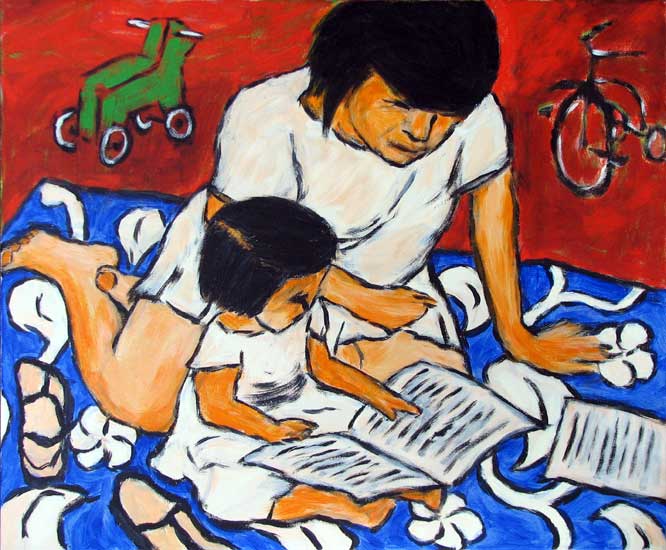How can I help my child with reading?

Why reading matters
Reading has a positive impact on every aspect of learning. It builds a wide vocabulary, strengthens comprehension and develops critical thinking across the curriculum. Reading also supports empathy and imagination, helping children to understand different viewpoints and worlds beyond their own. Over time, regular reading improves attention, confidence and enjoyment, laying strong foundations for lifelong reading for pleasure.
Helpful routines
Short, predictable reading sessions each day are often more effective than occasional longer bursts. Offering a range of material - fiction, non-fiction, poetry, magazines or graphic novels - helps children find texts they genuinely enjoy, which in turn nurtures reading for pleasure. Keeping books visible and accessible, and spending a few minutes talking about what you are both reading, helps reading become a natural part of everyday life.
Practical ways to support reading
Sharing reading with your child remains valuable at every age. This might include taking turns, reading aloud to them or listening while they read to you. A few minutes of discussion during or after reading helps deepen understanding . You might talk about characters, themes, new ideas or vocabulary.
Children benefit from using pictures, illustrations and other clues to make predictions and notice detail, particularly when exploring new texts. Re-reading familiar books builds fluency and confidence, while linking a text to real experiences.
Talking about vocabulary as it arises broadens language, and audiobooks can provide access to rich models of fluent reading. Encouraging children to read widely - stories, information books, websites or comics - helps them explore their interests and sustain enjoyment. Above all, keeping reading relaxed and enjoyable supports long-term reading for pleasure.
Beginning readers
Children who are learning to read benefit from practising their phonics knowledge and blending sounds to read words. Familiar books offer opportunities to build fluency and confidence; revisiting them helps reinforce learning. Gently supporting children to recognise common “tricky” words can also help them gain momentum.
Older or confident readers
As children grow more confident, they may enjoy spending time reading independently and exploring new genres. Some families like to read the same book and discuss themes, characters or the choices made by the author. Asking questions about motivation, evidence or different viewpoints encourages deeper thinking and helps children form opinions about what they read.
How school supports reading
In school, children have daily opportunities to read and to be read to. Teaching covers decoding, fluency and comprehension, ensuring children develop the skills they need to engage fully with texts. A wide range of fiction and non-fiction is available in classrooms and the school library, including texts that reflect diverse experiences and cultures.
Reading for pleasure is actively encouraged across the school through book talk, shared reading experiences, author events, celebrations such as World Book Day, and access to engaging texts. Children also enjoy dedicated time to read purely for pleasure, giving them space to immerse themselves in books of their choice. This may take place indoors, outdoors or in the library, allowing children to explore reading in calm, inviting settings.
High-quality books are used across the curriculum to broaden vocabulary and inspire curiosity.
Talking about books
Conversations about stories and information texts help children reflect more deeply on what they read. You might ask:
- What stood out to you? What surprised you?
- How would you describe the main character?
- Why do you think they made that choice?
- What might happen next? Would you change anything?
- What do you think the writer wanted you to feel or think?
These questions encourage children to think critically, make predictions and explore different perspectives.
Building enjoyment, stamina and fluency
Families can nurture reading for pleasure by visiting the library, creating a cosy reading space or helping children follow their interests. Reading little and often makes practice manageable, and revisiting favourite texts supports fluency and confidence. Hearing expressive reading, through adults, teachers or audiobooks, provides a model of pace and tone, helping children enjoy and understand texts more deeply.
Useful links
Article - Eight tips to support your child's reading at home
Booktrust - free online stories
International Children's Digital Library - free online books in different languages


